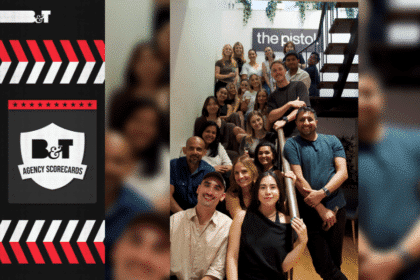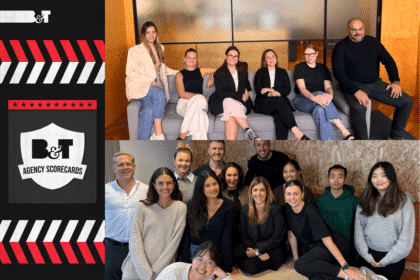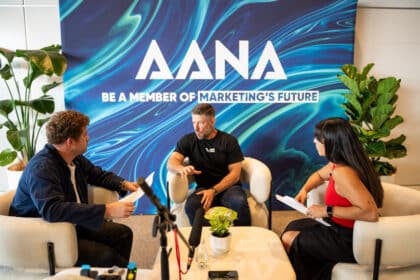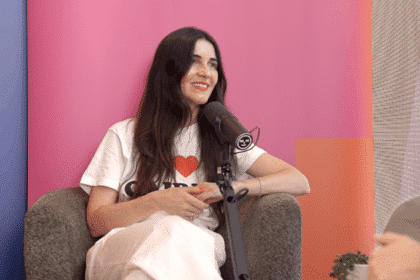In his latest for B&T, Leif Stromnes, DDB Australia’s managing director, strategy and growth, Leif Stromnes, examines the power of big versus small, the underdog and the overdog and why big businesses should think and do small to grow.
One of the most enduring parables of the Western world is the story of David and Goliath. In the story, David, a small shepherd boy armed with only a sling and stones, defeats a heavily armoured Philistine warrior called Goliath. What makes the story so interesting and emotionally satisfying is the fact that Goliath is a giant and David, a small boy, triumphs despite their size difference.
We love it when small triumphs over large. Our affection for little things and disdain for the gigantic is demonstrated through the stories we tell, and this pattern runs deep in our culture.
We support Little Bo Peep, Little Jack Horner, Little Boy Blue and Little Miss Muffet.
We cheer for Little Orphan Annie, The Little Mermaid and the Little Prince, and we hope Little Red Riding Hood gets safely through the forest.
From childhood, we equate big with evil – the Big Bad Wolf, Godzilla the gigantic dinosaurian monster, and who can forget the enormous great white shark of Jaws.
The huge offends and terrifies us.
In George Orwell’s harrowing book 1984, Big Brother controls us, and we view Big Oil, Big Tobacco and Big Government as equally menacing.
Our disdain for the very large extends to businesses, too. Jay Chiat famously said of his eponymous advertising agency TBWA Chiat Day “let see how big we can get before we get bad.”
We are quick to jump on big companies when they misstep, especially when the little guy, be it the man on the street or a small business, suffers as a result. We imagine big businesses being staffed by impassioned men in grey suits who are focussed on growth at any cost. We baulk at their annual earnings, and we overlook the fact that many of them are owned by our pension funds and that they pay enormous taxes that fund welfare for the same small people they are supposedly ripping off. In our minds, they are bureaucratic, slow, and resistant to change and innovation. To complete the negative picture, we often give them pejorative monikers like conglomerate, institution and empire, and we are outraged when they are given government bailout money because they are deemed “too big to fail.”
Small businesses, by contrast, are seen as fast, agile and exciting. We refer to them as enterprises, and they are enterprising, which the dictionary defines as being “characterised by a bold, daring, energetic spirit.” They are run by entrepreneurs, which sounds artistic, and it should be, because the word comes from the French who first used it to denote a leader in the arts, specifically a leader of a musical institution.
We revere the leaders who start these small companies, and they are often profiled in edgy, new age titles like Fast Company, which are quick to write about how they are changing the world for the better.
But what happens when these small enterprises grow and becomes giants themselves? We start to revile them once again.
When Sergey Brin and Larry Page first started Google with their iconic “I’m feeling lucky” search box and little else, it was a fresh and exciting departure from the corporate behemoth AltaVista.
We were immediately drawn to their brilliant technology, and we warmed to their cheeky slogan “Do no evil”.
Similarly, when Facebook launched as a home spun place for college students to connect, we loved their “Move fast and break things” attitude.
Fast forward 20 years and as they themselves have become gigantic, “Do no evil” and “Move fast and break things” has taken on a completely different and far more sinister meaning for us.
Given that growth is the primary objective of most businesses in a capitalist economy and small businesses, if they are successful, become large businesses, are they all destined to go the same way?
Not necessarily.
If they can retain the elements of “smallness” that once drove our affection, it is possible for them to defy gravity and be gigantic and liked, maybe even loved.
Apple understands how to feel small, even though it is a trillion-dollar enterprise and a giant by any definition.
In the classic Apple vs. PC advertising campaign, the Mac character is played by Justin Long, a short, skinny guy who looks like the cool kid in school who would wag class.
The PC character is played by actor John Hodgman, seven years older and many pounds heavier, who looks like the serious guy who would play viola in the high school orchestra.
These Apple ads work little vs. big brilliantly.
Legendary founder Steve Jobs made all of his major appearances wearing non-designer jeans, white New Balance running shoes and a plain black turtleneck sweater. He looked like the archetypal small business entrepreneur, full of flair and charisma, and the antithesis of gigantic Microsoft, which many in the tech industry labelled the “evil empire”.
By all accounts, Apple under Steve Jobs acted out “little” in the way the company operated too. In his book Insanely Simple. The obsession that drives Apple’s success, author Ken Segall, who worked with Jobs for more than a decade, describes how meetings were small and intimate and everyone was hand-selected and expected to offer up a point of view. There was, according to Segall a complete lack of big business bureaucracy and structure in the way Apple ran its business.
How else can big business feel small?
One very common strategy is to actually become small. This is often done by launching a new brand with all the elements of smallness that comes from starting from scratch or by acquiring a small brand with all the kudos this brings to the giant owner.
Unilever’s purchase of Ben and Jerry’s and Nike’s purchase of iconic skate and snowboard brands Hurley and Converse are examples of this strategy.
Personalisation with customers is another effective “small” strategy. By allowing customers to access and shape a company’s product or service, their emotional bond with the brand is deepened. People feel empowered from being involved in the design process, even if this is purely superficial.
For instance, Nike By You (previously NikeID) lets customers custom-design shoes, and accessorise bags and backpacks, and Levi’s Tailor Shop lets you repair and personalise your denim with the help of expert tailors.
Finally, large companies can get small by being radically transparent about their values and building communities around their beliefs and principles.
Chick-fil-A and Patagonia are two examples. The former lives its Christian values by closing their entire chain on Sundays and the latter encourages you not to buy their outdoor clothing and shoes, but rather repair your old gear, which they will help you to do.
This strategy is perhaps the most powerful, and as we saw during the COVID years, the companies that stepped up to the plate and put their money where their mouths were in the name of the public good were heavily rewarded.
After all, as founder of DDB, legendary adman Bill Bernbach once famously said, “a principle is not a principle until it costs you money”.











